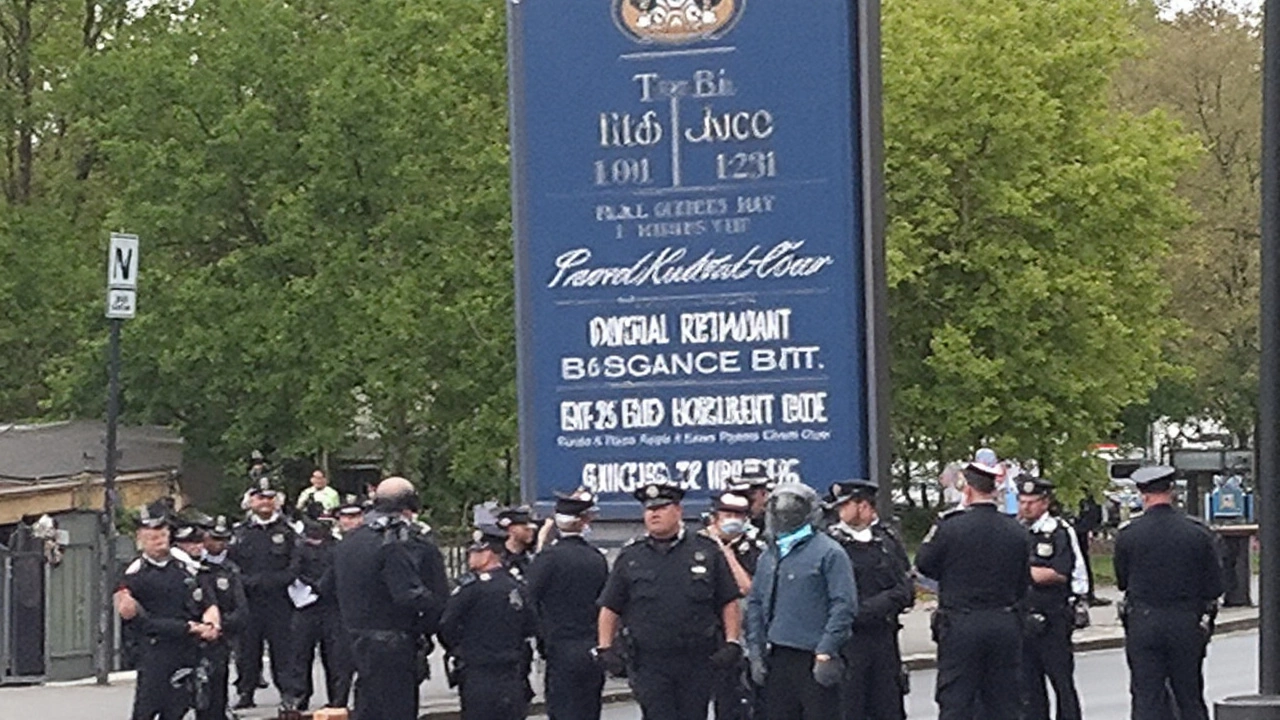Judge Sides With Council in High-Stakes Battle Over Bell Hotel
Talk about a hotbed of tension. The quiet Essex town of Epping has been at the center of a nationwide debate about asylum seekers and community impact. On August 19, a High Court judge stepped in with a ruling that's already shaking up how councils and the Home Office deal with housing asylum seekers in local hotels.
For weeks, the Bell Hotel in Epping was in the spotlight—and not the good kind. Protests had become a regular sight outside the front doors, drawing crowds in the thousands. The atmosphere got especially charged after an Ethiopian asylum seeker, Hadush Gerberslasie Kebatu, staying at the hotel, got arrested. He's accused of sexual assault, harassment, and coaxing a 14-year-old into sexual acts. Kebatu claims he's innocent, but the heated emotions in town only grew as his court date drew near.
As the protests picked up, both local folks and outside groups got involved. Chanting slogans and holding banners, some called for sending asylum seekers home, while others pushed back with counterprotests supporting refugees. The situation got out of control—nine people landed in police custody as scuffles broke out and things occasionally turned violent. It was clear the community was on edge, and the Bell Hotel had become a symbol of the fight.

Legal Battle: Planning Rules vs. Government's Need
The council wasn't just watching from the sidelines. Epping Forest District Council, worried about rising anger and the prospect of more chaos, argued that the hotel's owners, Somani Hotels Limited, were breaking planning regulations by letting it be used as a hostel for asylum seekers. Their lawyer, Philip Coppel, didn't hold back—he told the court that the hotel had become a “feeding ground for unrest.” The council asked for a quick-stop court order to force asylum seekers out, at least until all the legal planning hurdles were cleared.
The Home Office, led by Yvette Cooper, scrambled to intervene at the last minute. Officials warned that this case could blow a hole in their strategy of using hotels for asylum seekers all over the UK—a strategy that's come under fire since the government began leaning on temporary hotel accommodation for a sharp rise in arrivals. But the judge wasn't buying it. Mr Justice Eyre said the case was about local planning rules, not national policy, and ruled the Home Office's involvement wasn't needed. He granted the council's request: Somani Hotels can't use the Bell Hotel for housing asylum seekers without fresh planning permission. The clock's ticking—asylum seekers have to be gone by 4 pm on September 12.
In his written decision, Justice Eyre admitted that evidence of broken planning rules wasn't clear-cut. But the sheer weight of the situation and risk of further “unprecedented levels of protest and disruption” tipped the scales in favor of acting quickly. He stopped short of giving the hotel owners immediate permission to appeal, though they can still try their luck at the Court of Appeal.
- The court's interim injunction is just the first step, with a permanent ban still on the table.
- Council leader Chris Whitbread says this gives locals hope after a tense summer, but warns the legal fight isn't over yet.
- No one seems sure where the asylum seekers will go once they're moved out—raising big questions for the UK's broader asylum processing system.
With a fresh hearing coming up to decide if the ruling should stick for good, the eyes of councils, campaigners, and government officials are glued to Epping. Whatever happens next at the Bell Hotel will echo well beyond this quiet patch of Essex.





